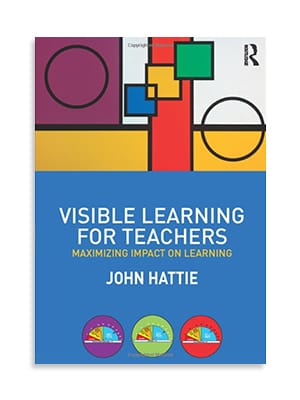5 Brain-Based Classroom Strategies to Boost Student Learning
After your students take a test, have you ever heard them say things like:
“I knew the answers, I just couldn’t think of them!”
“I studied for hours and hours – why didn’t I do better?”
“Why didn’t you ask the right questions, the ones I knew the answers to?”
If you have, you’re not alone. The good news is there are ways to help students remember more of what they learn in class. The secret is this: When it comes to learning and retention, easier isn’t always better. In fact, making studying a bit more difficult can often lead to better outcomes for students.
Studies show that if we want to improve student learning, we need to challenge learning. This concept is known as “desirable difficulty.” Introducing challenge into the learning process leads to long-term retention, whereas easier strategies such as traditional highlighting and re-reading typically only boost learning short-term. Given how many students rely on these easier study methods, it’s no wonder so many of them struggle to retain content knowledge!
One way teachers can increase challenge and boost learning is by increasing the amount of “retrieval practice” they use in the classroom. Retrieval practice is any activity that requires students to “call information to mind” – or recall information from memory – in order to “make it stick.” When teachers ask students to retrieve information (even information they think they have already learned) they often struggle to recall the answer. It is this struggle that leads to greater learning as students exercise and strengthen memory. So, the more we engage students in retrieval throughout a unit (or for as long as we want them to retain the information) – the more likely they are to the remember it long-term.
If you have students who struggle to retain content knowledge or need new ways to study beyond re-reading and reviewing notes, try these strategies:
5 Classroom Activities to Increase Retention and Boost Learning
1. Brain Dumps: Pause during your lesson or lecture, ask students to write down as much as they can remember from the current lesson, and then continue. That’s it! Research shows this recall activity boosts students’ learning, organization of knowledge, and inferential reasoning.
2. Two Things: A quicker version of a Brain Dump, pause during your lesson or lecture and ask students to write down two things in response to a specific prompt, such as what are two things you have learned so far? What are two examples from your own life that relate to today’s lesson? Then continue.
3. Retrieve-Taking: This activity replaces traditional notetaking when you are reading together as a class; you can also teach students to do this on their own. In retrieve-taking, students listen first (or read a few pages) without writing anything down. Every so often, the reader pauses (or students close their books), and students write down important facts or topics they remember. This strategy encourages students to recall information (and acknowledge gaps in their knowledge), rather than just copy it verbatim from the book. They use their books to fill in missing information once their initial reading/ retrieval is complete.
4. Mini-Quizzes: Use frequent mini-quizzes to help students build knowledge over the course of a unit. Each day quiz students on 3-5 questions based on the previous day’s lesson. Go over the answers as soon as the quizzes are collected to ensure students hear the right answers. These quizzes do not have to be graded everyday (or at all), since the objective is to encourage retrieval and memory (not assess mastery).
5. Mix-It-Up: Instead of asking students, “what did we learn today (or yesterday)?” ask, “what did we learn last week?” Instead of assigning homework on a lesson you gave today, give homework on something you taught two days ago. Research shows mixing up two or more related topics (also known as interleaving) boosts learning even more!
From: Powerful Teaching: Unleash the Science of Learning by Agarwal and Bain
Tips for Success
Regardless of the retrieval strategies you choose to use, every student must participate in the action. For example, all students must write down or verbally share responses to “Two Things” in class. Calling on individual students to answer questions only increases learning for those students.
It’s also important to keep retrieval practices low-stakes and short (five minutes or less is perfect for most students) since desirable difficulties are, by definition, difficult and often lead to more incorrect answers. Short practices make the work feel more manageable for students and make it easier for you to keep students focused on the long-term gains they will see. Even adding a few additional opportunities for retrieval practice each week can make a big difference in student learning!

























